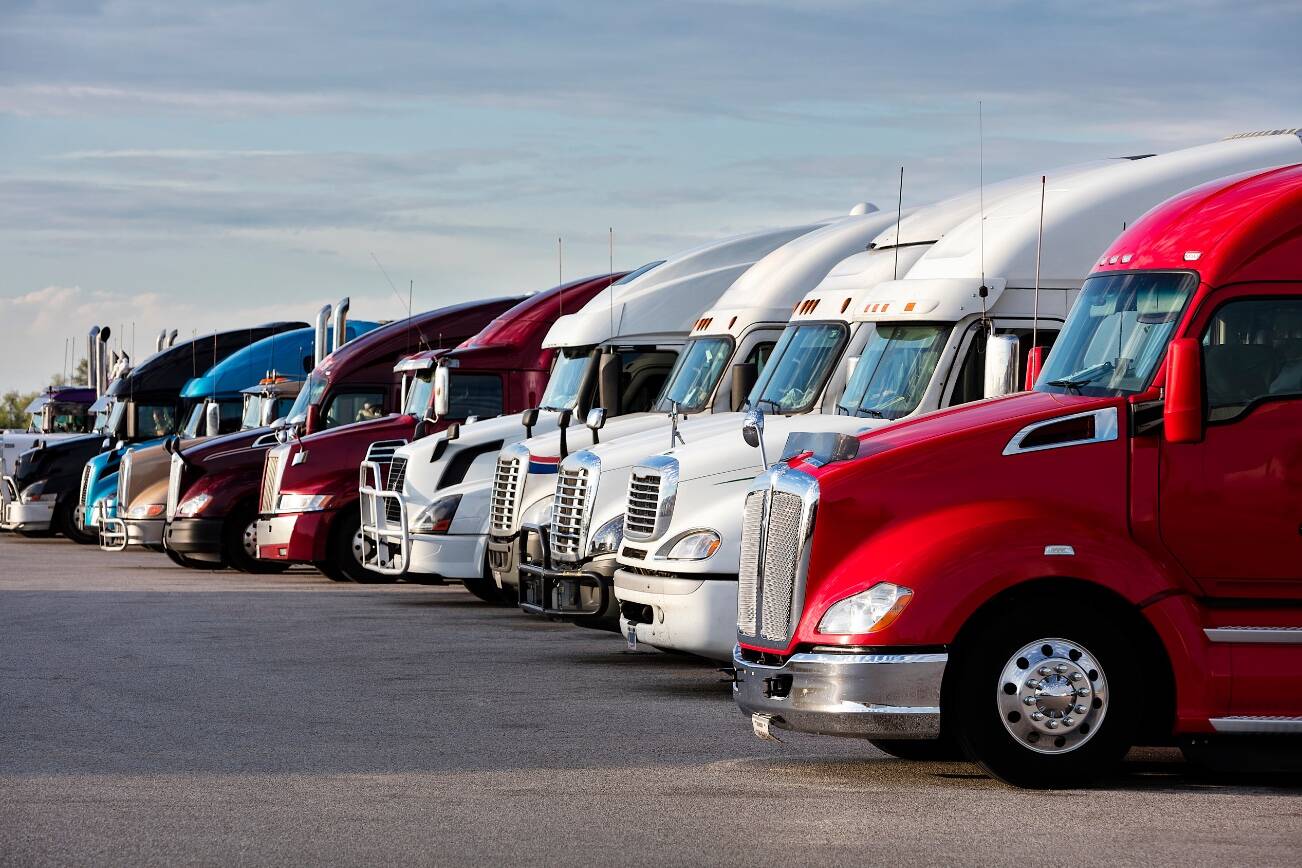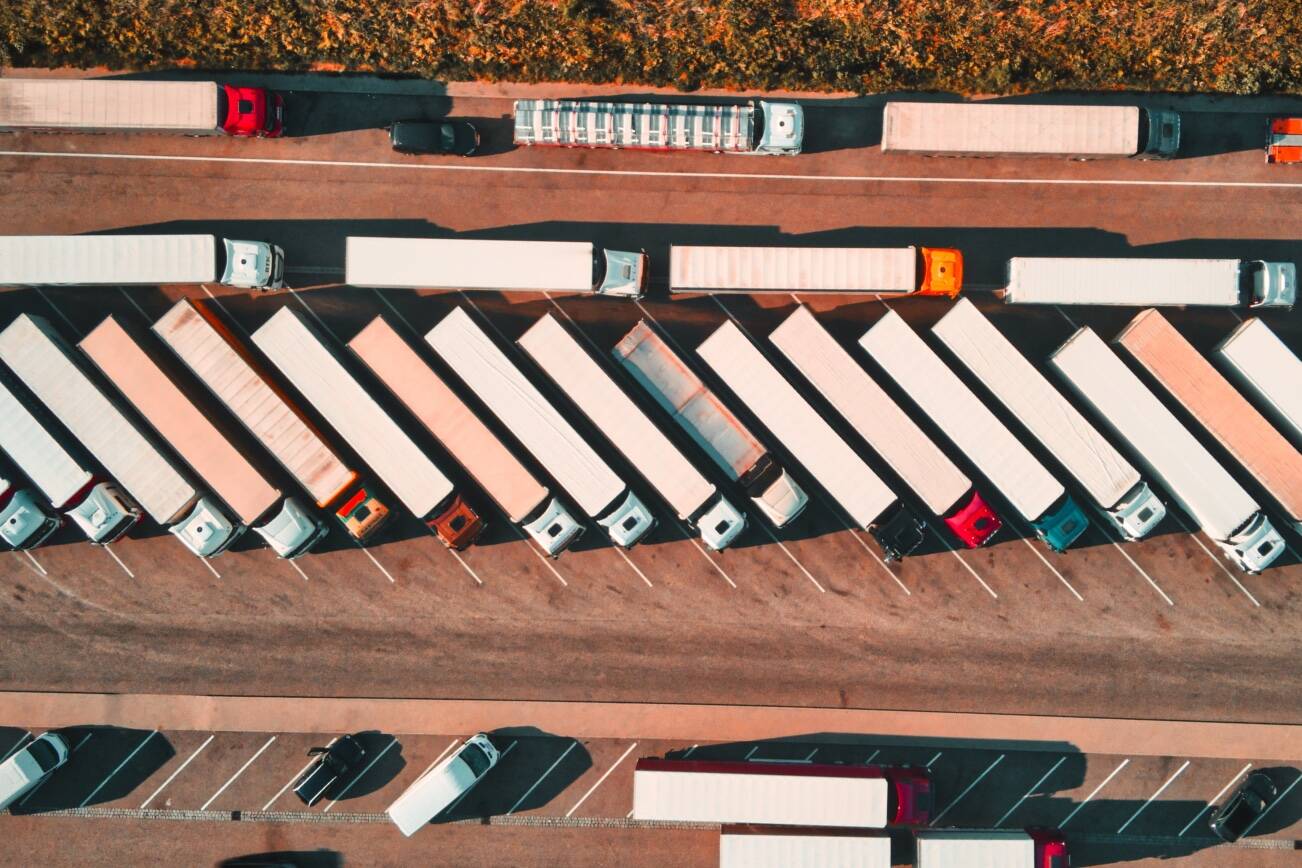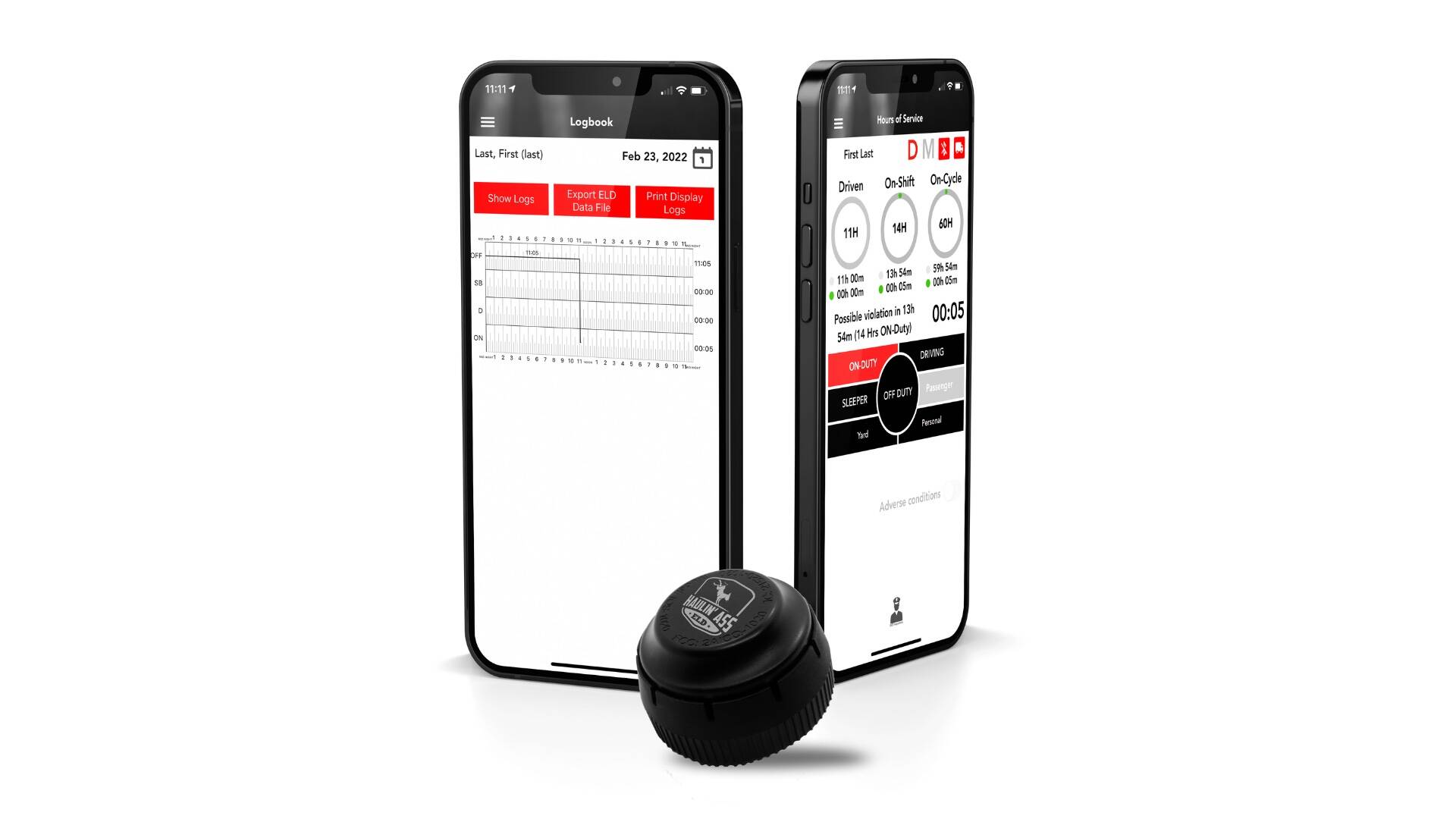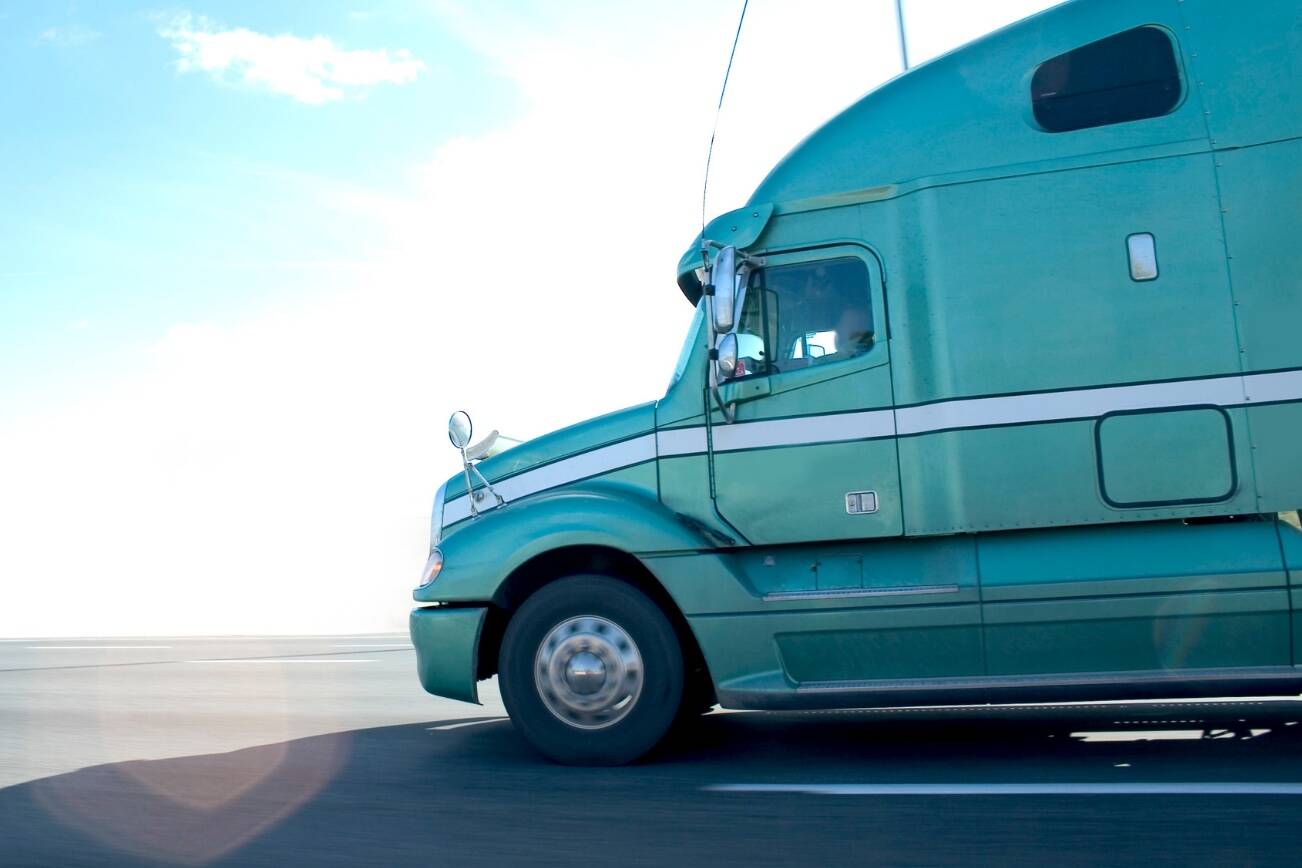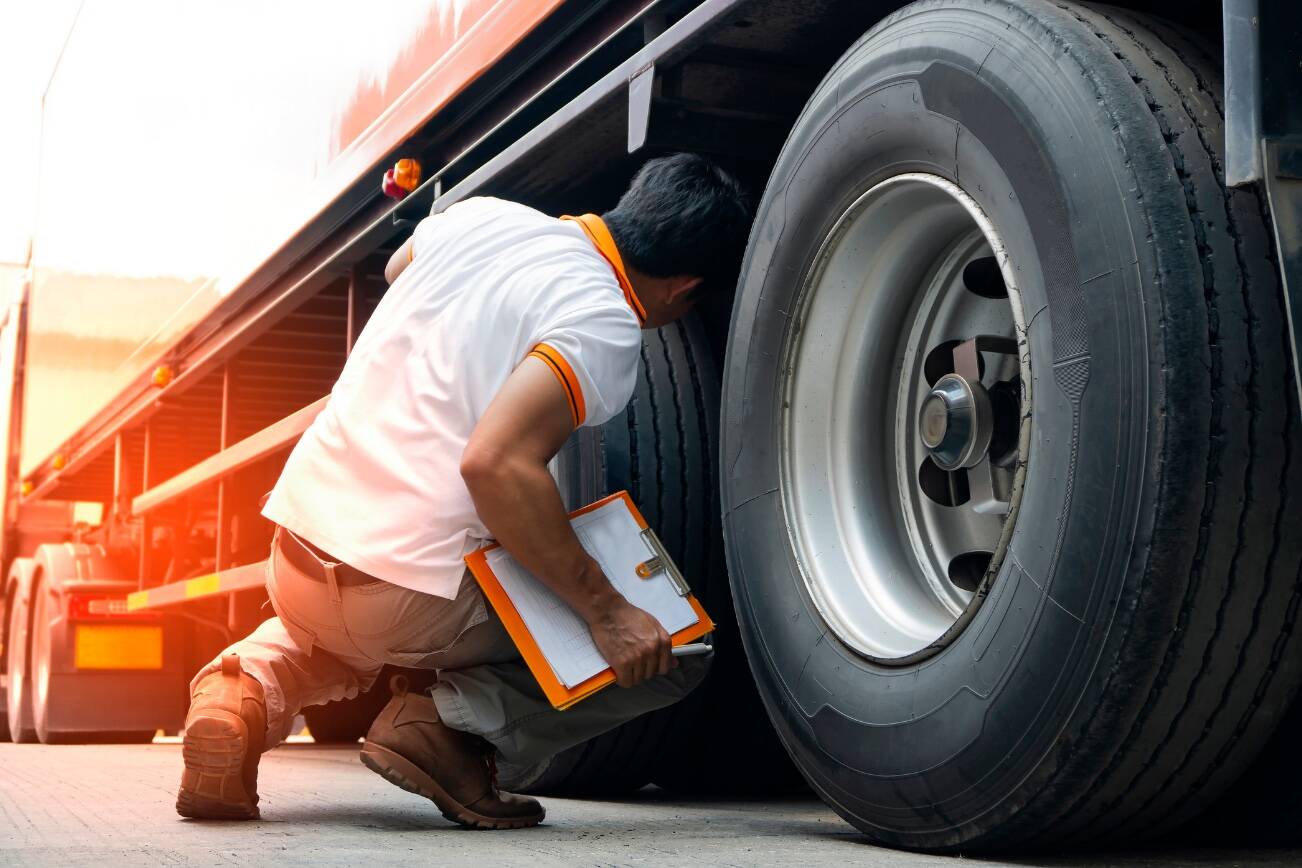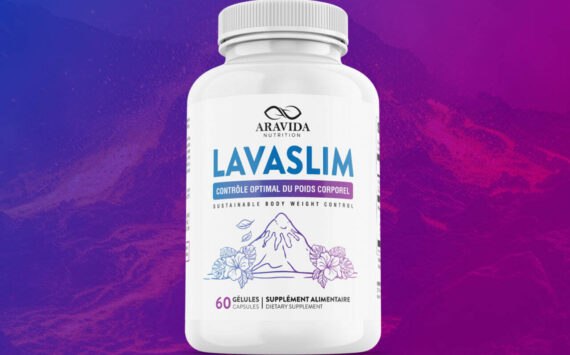If you’re a commercial driver, you’re probably already aware of the required use of ELDs for most commercial motor vehicles. But for those of you still living in the 90’s (don’t blame you), the ELD mandate went live in December of 2019 with two goals in mind:
- To create a safer work environment for truck drivers by automatically recording drivers’ on and off-duty time (too many folks were bending the ELD rule with paper logs to earn more driving time then falling asleep behind the wheel).
- To share driver’s data with the Department of Transportation a little faster, to make DOT officers’ lives a little easier, and get commercial drivers back on the road a little sooner.
Drivers who get caught without an ELD will be placed out of service, penalized with fines, and have CSA points added to their record.
The good news? We’re here to tell you everything you need to know to keep you in compliance and avoid all of those hours of service violations you could potentially get.
Let’s begin…
How does an ELD work?
An electronic logging device, AKA an ELD, is a combination of hardware that plugs into your truck and software (usually an app on your phone or tablet) that drivers and fleet managers of commercial motor vehicles use to track their Hours of Service (HOS)
The hardware is designed to record the vehicle’s engine status, operational hours, and odometer to track miles driven. From there, the hardware syncs with the app where you can edit your logs, and depending on the app you choose, they can get even more fancy and read engine codes, record vehicle inspections (DVIR), connect to GPS, dashboard cameras, and so on. Plus the software can be used on nearly any low-budget phone or tablet (don’t recommend it, just saying you could).
But wait, there’s more…
When electronic logging devices were still just a sparkle in the FMCSA’s eye, the dream was to help drivers follow regulations stipulated by the Department of Transport. But since the ELD connects to the vehicle’s engine, it also collects data that helps drivers and fleet managers keep track of fuel and tax management (IFTA reports ring a bell?). And since most ELDs are now GPS-enabled and have cloud-based data storage with wireless connection, they’ve become a huge asset for fleet management.
Though it is fun to gang up on big government, unfortunately there were some good things to come out of this mandate to make driver’s and the desk people’s jobs much easier.
Who is required to have an ELD?
The short answer:
ALL drivers and fleet managers that maintain Record of Duty Status (RoDS) must use FMCSA-approved ELD…
UNLESS you are a:
- CMV that work short hauls within 100/150 air miles
- CMV with engines manufactured pre-2000
- Driveaway-towaway operator
- CMV used to transport agricultural equipment, produce, etc.
- Driver/fleet who maintain RODS for less than 8 days
So if you’re not on the exceptions list, you are required to register and self-certify your ELD device with the FMCSA.
How do I know which ELD companies are legit?
Easy. Check the FMCSA list
If it’s on the list, then it’s been approved and you’re good to go, BUT just because an ELD company is legal, doesn’t mean it’s good.
It’s important to know which service and options are best for your business otherwise you could get yourself locked into a multiyear contract with a company you don’t like with a bill that’s too high.
Which ELD is the best?
Glad you asked! The answer depends on a few things:
- How much customer support are you looking for?
- What features are important to you?
- What’s the size of your fleet and admin team?
- How much do you want to spend?
Haulin’ Ass ELD – Best ELD for Owner-Operators Overall
Haulin’ Ass ELD is the best electronic logging device in 2022 for truck owner-operators, hands down.
Why?
They have amazing driver support.
Truth is, most of the ELD companies have extremely similar products. Some have slightly better hardware features than others or a cleaner app design, but the area where each company is different is how they take care of their customers.
That’s where Haulin’ Ass ELD dominates. Their hardware is good, their app is simple, and their bilingual customer support is unmatched. They have a Basic ELD Subscription that offers all the basics and a Pro ELD Plan where they will act as your personal log books assistant. Their team will proactively reach out to let you know when your books need attention (they’ll often even fix them for you), send your cleaned up log books and IFTA reports monthly to your email, and help guide you through any audits.
Is all of this pro level admin support expensive?
No, it’s $21/month for Basic and $35/month for Pro. No contract. Check them out here.
- COMPLIANT IN USA & MEXICO
- HABLAMOS ESPANOL
- CUSTOMER SUPPORT TEAM
- FAST INSPECTION REPORTS (DVIR)
- NO CONTRACTS
- NO DOWNTIME
- AUDIT SUPPORT
- IFTA REPORTS SENT MONTHLY
- LOGBOOKS SENT MONTHLY
The Full List of Best Electronic Logging Devices 2022
Ready to see the full list?
There are 100s of ELD providers in the market which can be overwhelming to dig through, so we broke down the best of the best for you. Honestly, each product listed here is great and remain compliant with FMCSA, you can’t really go wrong with any of these. It’s just a matter of which features are most important for you. So, take your pick!
Haulin’ Ass ELD: Best ELD for Owner-Operators
There is one feature that Haulin’ Ass ELD offers the competition hasn’t caught up with, and it’s their customer support. When comparing the endless list of features and benefits between the ELD companies, you’ll find they compete mainly on hardware (which are very similar and mostly quite reliable), app design (which is limited by FMCSA’s regulations), and price. And where Haulin’ Ass ELD lacks in extra tech features, they make up for in taking care of their drivers. It’s like having a personal team helping keep your log books, IFTA reports, and vehicle inspection reports clean and delivered once a month to your email. Need to add a driver? Easy, just text them. Getting an audit? Just text them. Forgot to sign out? Text them.
If you need fancy features, Haulin’ Ass ELD probably isn’t your company. But if you need something simple, reliable, and your paperwork handled for you, check them out.
Pricing
Haulin’ Ass ELD has two plans, the Basic ELD Subscription for $21/month and Pro ELD Subscription for $35/month. Both include their excellent customer service, the Pro ELD comes with your log books cleaned up and delivered monthly. No contract. Cancel whenever.
Features
- FMCSA and DOT ELD compliance
- Automated HOS logs
- DOT Inspection Button
- Easy Edit Log Books
- Vehicle Inspection Reports (DVIR)
- Audit Support
- Real-time Text Support
- Compliance Risk Alerts
- Logbooks Emailed Monthly
- IFTA Reports Emailed Monthly
Motive ELD: Best ELD for Large Fleets
This is the Walmart of ELD companies used by thousands of truckers. What does that mean? It means they’re huge. When ELDs were becoming a thing, Motive (KeepTruckin at the time) pounced on the opportunity to be one of the first in the market. They’re now known for their user-friendly interface and for being cost-effective for large fleets. The plethora of services provided by Motive are great in terms of being able to scale your fleet while keeping all of your different hardware components under one provider. Given the range of features and added wireless web services it offers, it is one of the best in its price range.
Pricing
Motive’s ELD starts at $20 per month with a long-term contract and goes up from there depending on which products you’d like to include. The hardware units are free for lease for the duration of the contract and must be returned once the contract is up.
[Read more about IFTA calculation HERE.]
Features
- FMCSA and DOT compliance
- IFTA fuel tax reporting
- Intuitive driver app and driver coaching
- Vehicle inspections and diagnostics
- Trailer and equipment tracking
- In-Cab Wi-Fi hotspot
- 24/7 tech support
Verizon Connect ELD: Best ELD for Reporting
Verizon is another juggernaut in the ELD space offering a bundle of fleet management software with their Verizon Connect Reveal ELD. Verizon also provides vehicle maintenance scheduling and easy Driver Vehicle Inspection Reports (DVIR). Verizon offers a wide range of efficient tools at a very competitive price.
Pricing
Verizon doesn’t have public pricing so you’d have to contact them for a personalized quote depending on which features you’re looking for.
Features
- FMCSA and DOT compliance
- Integrated reporting
- Live location tracking
- Free demo
- Fuel tracking
- Improved driving experience
BigRoad ELD: Best ELD Hardware
BigRoad, an AT&T company, is one of the most popular ELD providers in the trucking industry offering a free electronic logging device with their contract. They sell additional hardware through their parent company, Fleet Complete, including dash cams, GPS trackers, and other devices. All products are priced according to your fleet size and needs.
Pricing
BigRoad contracts start at $19.99/month and increase based on optional add ons.
Features
- FMCSA and DOT compliance
- GPS options
- Dash cam options
- Automated HOS logs
- Edit log books
- Vehicle inspection reports (DVIR)
The software allows managers to customize alerts and highlight important details in a report, making it easier and faster to take crucial decisions. The GPS Trackit ELD comes at a starting monthly rate of $24.95, with no contracts.
Gorilla Safety ELD: Best ELD on a Budget
Gorilla Safety is one of the newer services in the ELD industry yet one of the first ELD service providers to combine full fleet management and ELD solutions. Their most popular feature is their document management which allows document scanning and digitally records documents to designated sections for the driver, the truck, or the company.
Pricing
The Gorilla Safety ELD hardware has a lease price of $7 with a subscription starting at $12 per month. It is one of the most budget friendly ELD plans and even offers a free trial.
Features
- FMCSA and DOT compliance
- Easy documentation of data and records
- Location tracking accurate to one mile
- Immediate help in case of an accident
- Schedule mechanic inspections
EROAD ELD – Best ELD for Small Fleets
Looking for a basic and affordable ELD with fleet management services? Check out EROAD. All of their hardware is backed by a warranty and comes with technical support. Some of EROADS benefits are easy management of fuel costs, reduced paperwork and administration time, and accessible records of mileage and route data.
Pricing
EROAD ELD offers different contracts starting at $30/month plus a $35 setup fee.
Features
EROAD Ehubo ELD offers the following features:
- FMCSA and DOT compliance
- The compact and single in-vehicle unit
- Location tracking
- IFTA reporting
- Safety management and risk alerts
- Geolocation capabilities
- Project time monitoring
EROAD also offers fleet management services. All their hardware is backed by warranty plans, and they also provide reliable technical support. Some of the benefits of EROAD ELD are reduced paperwork and administration time, accurate records of mileage and route data, management of fuel receipts, compiling of IFTA return data, and fuel trip records. These features and benefits make it a great fit for owner-operators as well as small-sized fleets.
Garmin ELog: Best for Long-Term Use
If you are playing the long game when it comes to your electronic logging device (ELD), Garmin might be the one for you. Garmin’s eLog model is different from the competition because instead of a subscription, they sell their system for one large upfront ELD cost. The ECM device is easy to set up and connects to the eLog app on a phone or tablet.
Pricing
You can get the Garmin ELogs hardware for a one-time purchase of $249.99 with no recurring costs.
Features
- FMCSA and DOT compliance
- IFTA fuel tracking
- Free mobile app
- 24/7 customer support
- Automated recording of Hours of Service (HOS)
Samsara ELD – Most Reliable ELD
Samsara is another early investor in the ELD industry and known for its state of the art fleet management features, Samsara is a great choice for beginner to pro fleet managers. As far as ELD services go, Samsara has one of the most reliable products out there. Samsara’s ELD can be relied on even without cell service.
Pricing
Samsara’s ELD contract requires an initial down payment of $99 and plans start at $30/month.
Features
- FMCSA and DOT compliance
- Asset tracking
- Fuel cost management
- Data visualization
- Driver and customer management
- Emergency dispatch
Rand McNally ELD 50: Best ELD for Communication
And finally, the Rand McNally ELD 50. This one is probably best known for their effortless installation and user-friendly interface. Rand McNally is essentially a plug-and-play device that requires zero expert help.
Pricing
Rand McNally ELD has a $150 setup fee and various subscription plans starting at $20 per month.
Features
- FMCSA and DOT compliance
- Easy installation
- Free trial
- Two way messaging
- IFTA fuel tracking
- Workflow reporting
Drive ELD – Best Basic ELD
Just looking for the minimum to keep you out of trouble? Drive ELD is the best option for businesses that only care about becoming FMCSA compliant and nothing more. Drive doesn’t come with a huge list of features but hey, it fulfills the basic necessity of an ELD.
Pricing
Drive ELD plans start at $99 per year per vehicle and come with a 30-day money-back guarantee.
Features
- FMCSA and DOT Compliance
- Cloud-based storage
- Free trial
- Email support
Well? Which ELD is the Right Choice?
Even with the 100s of ELD options distilled down to 10, it still feels overwhelming doesn’t it? Here are a few final thoughts to consider as you make your decision.
Does it work well for your vehicles?
A fleet can consist of several classes of commercial vehicles from vans, to light-duty, to box trucks, tractor trucks, and so on. Make sure the ELD features you’re choosing can work for your fleet, vehicles, and drivers. When you change ELD providers, this means training all the drivers and employees on how it works. Does the company you’re considering offer support in this? Do they have the hardware to fit your commercial motor vehicle needs?
Does it work well for you drivers?
The whole point of an ELD is to make drivers lives and DOT officers’ lives simpler and more safe. Would the ELD service you’re considering do that for your team? Or would the fancy features actually begin to complicate (and slow down) fleet operations? When you or the drivers have questions on the app, who will be the one to answer those questions? Ultimately, the ELD is a tool that will rely on you or your drivers in order to work effectively. It’s best if you or your drivers like the tool.
Does the price make sense?
In a perfect world, paying for your electronic logging device should actually save you money by helping you avoid fines and violations, save your admin team time cleaning up logbooks and IFTA reports, and ultimately, get your drivers paid and more customers in the door. Depending on your fleet, some companies listed above can easily cost beyond $3,000 per month. This makes the cheapest companies sound fantastic, but what if (and when) something goes wrong, will they help?
Does it make sense in the long run?
The only constant in this life is change, and as in life, the ELD mandate is no different. The FMCSA is making updates to the mandate regularly and the ELD apps need to keep up with the changes. Is the company you’re considering technologically sound enough to keep up? Is the website functional? Is the user interface simple? Is the support team responsive?
Does it work with the cloud?
The days of telling the DOT officer your dog ate your logbook are over. Nowadays, data stored in a cloud-based solution can be accessed with any device by an authorized user. The cloud also makes sure that any critical information is safely recorded and won’t be lost even if your dog does eat your smartphone. The question is, does your potential ELD service provider have cloud-based technology that can store ELD data whenever a connection is established when you pass through those areas with lesser or no cellular coverage?
Does it have reliable data security?
There is a ton of information about your trucks and drivers that is collected by ELDs including driver identification, motor carrier addresses, client information, GPS locations, and God knows what else. It’s probably safe to assume you prefer this information to not end up in places it doesn’t belong. So, what does your ELD provider say about encrypting and securing all of this transmitted data?
That’s all folks!
If you’re still reading this, you know more about ELDs than most people on Earth. So, the power is now yours. If you’re still stuck on a decision, do what you’d probably do when choosing a restaurant. Just read the comments. Every business will have negative reviews if they’ve been around long enough, but pay attention to how the company handles those comments.
Got any tips or questions? Let us know!

